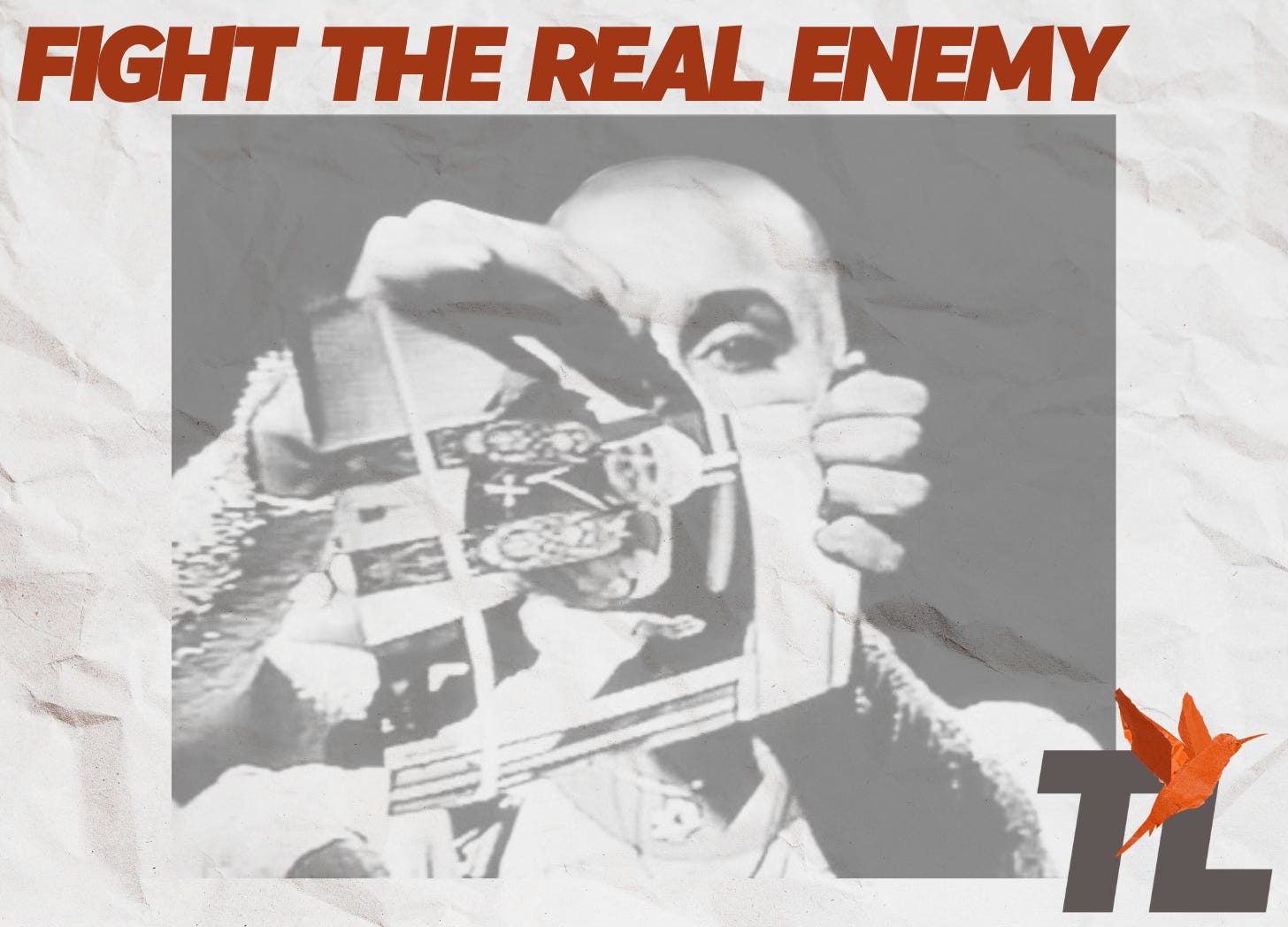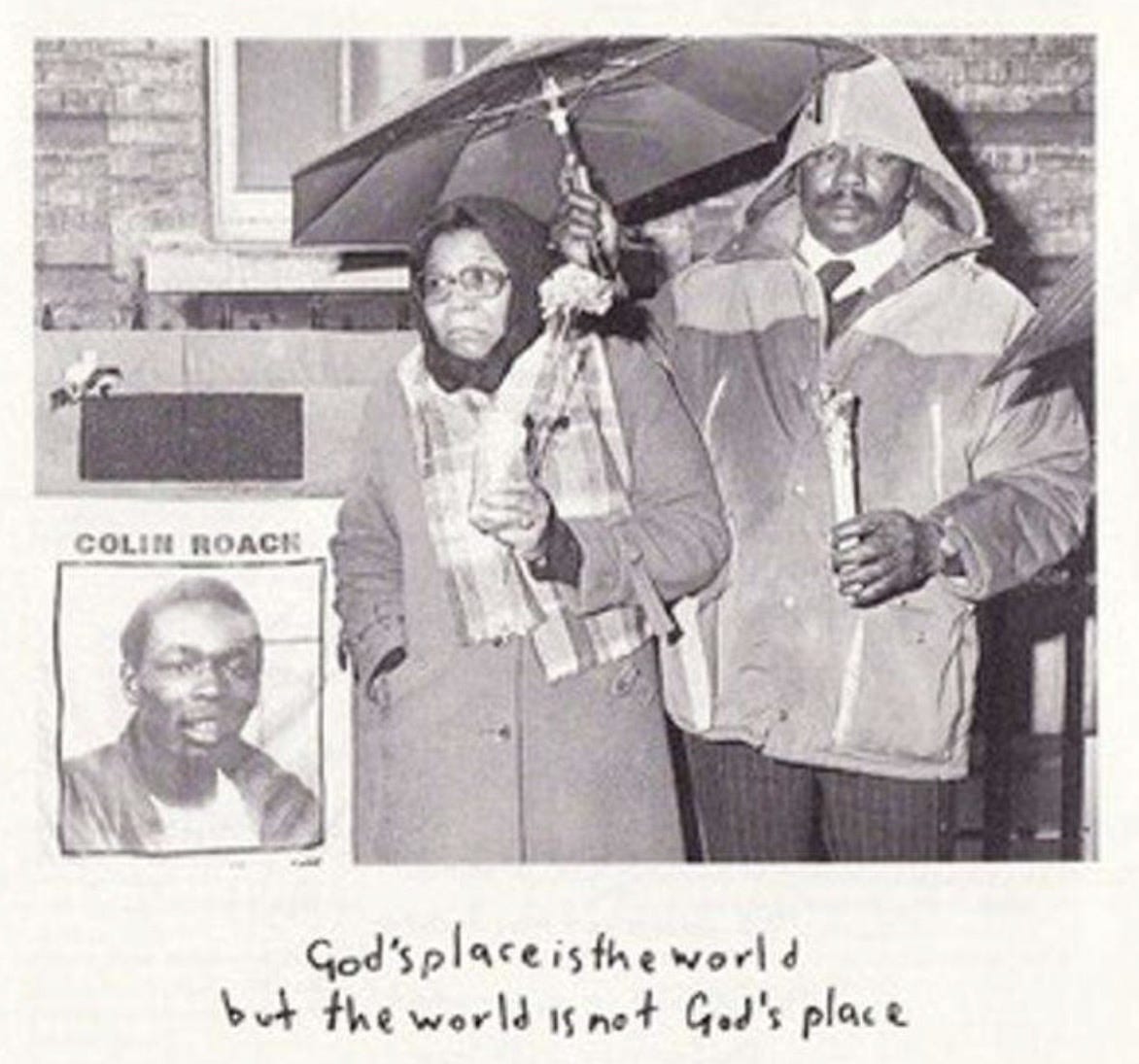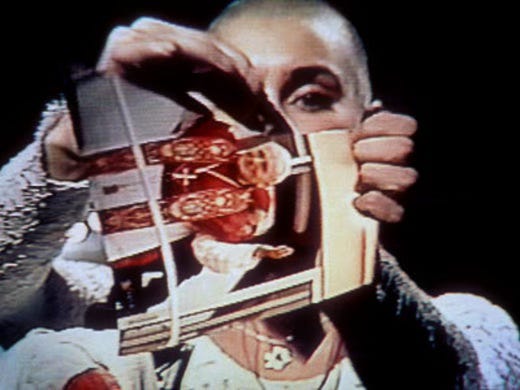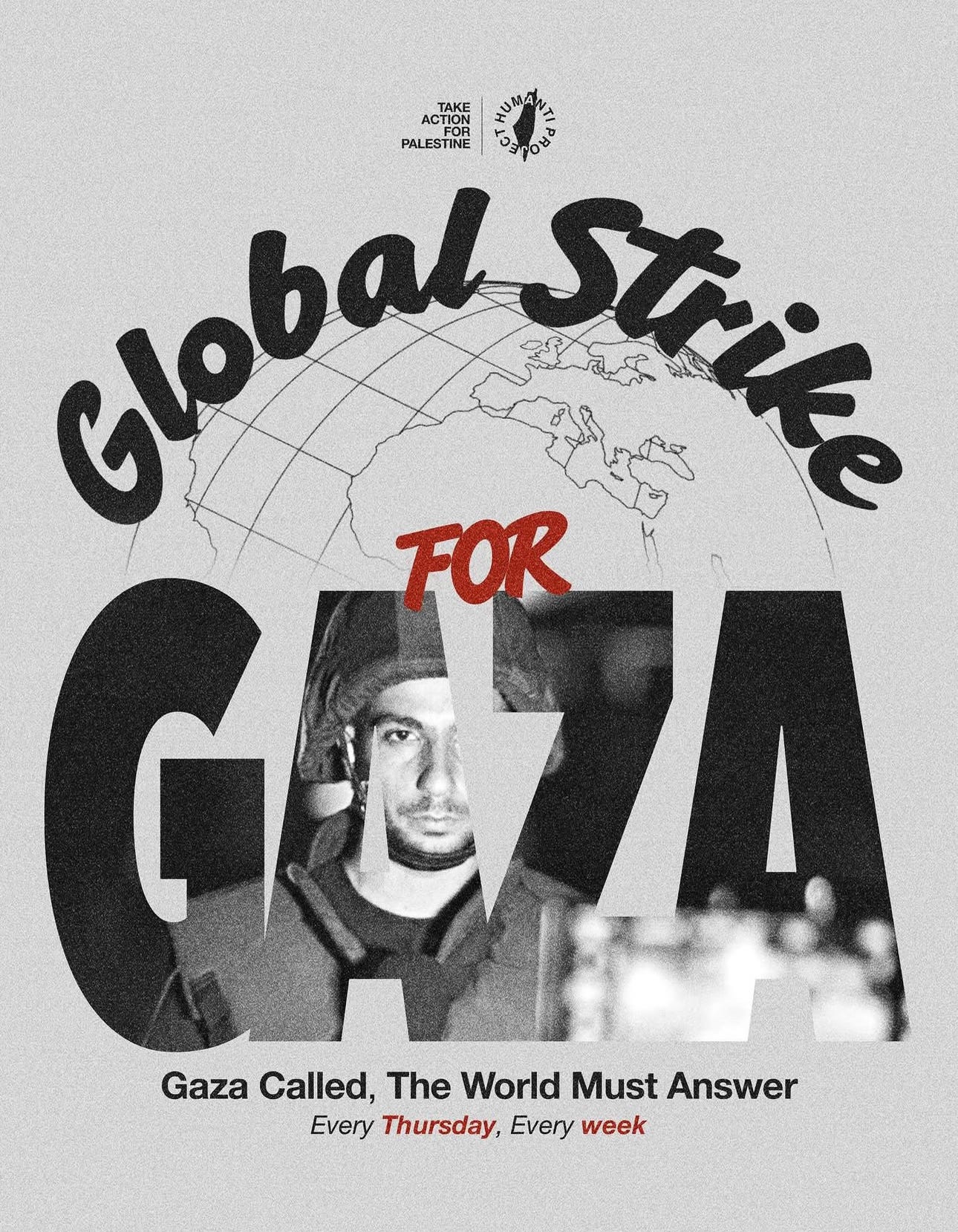Fight the Real Enemy
Plus, Join the Global Strike for Gaza
As a Gen-Xer growing up in the 1980s, I was a devoted fan of Sinéad O’Connor. But looking back, I now realize how her music played a role in shaping my political consciousness. She was not just an artist I admired—she planted some of the earliest seeds that would later grow into my radicalization.
On her 1990 album I Do Not Want What I Haven’t Got—still one of my favorites—an image in the liner notes stood out—a photo of Colin Roach at what looked like a vigil attended by his parents. The grief on his mother’s face was apparent. Beneath it, Sinéad added the caption: “God’s place is the world but the world is not God’s place.”
At the time, I had no idea who Colin Roach was. This was before the internet, so I went to the library and sifted through microfilm until I pieced together his story.
Colin Roach was a 21-year-old Black man living in Hackney, East London. One night in 1983, while riding his scooter home, he was stopped by police who, after observing him, confidently decided the scooter must be stolen. Some time later, Colin lay dying from a gunshot wound inside the foyer of the local police station. Police immediately claimed he had shot himself.
The story quickly unraveled. The coroner debunked the suicide claim, witnesses contradicted official accounts, and community outrage spilled into the streets. Protesters demanded inquiries, accountability, and justice. None came. Instead, the state closed ranks, stalled investigations, and Colin’s death remained “unresolved.”
Now the lyrics from the fifth track, Black Boys on Mopeds, on the album made sense:
“England’s not the mythical land of Madam George and roses,
it’s the home of police who kill Black boys on mopeds.”
By 1992, Sinéad was already internationally famous. But her performance on Saturday Night Live in October of that year changed everything. After she performed an a cappella version of Bob Marley’s “War” with new lyrics she wrote about child abuse, she held up a photo of Pope John Paul II, ripped it to pieces, and declared: “Fight the real enemy.”
The backlash was immediate and severe. She was booed off stages, blacklisted from radio, and ridiculed in the press. Her career never fully recovered.
Most people never understood what she was trying to say. In 1992, the world did not yet know the full extent of sexual abuse within the Catholic Church. It would be nearly a decade before Pope John Paul II publicly acknowledged it, and longer still before the global scope of the abuse—and its cover-up—came to light.
But Sinéad knew. She was a survivor of abuse herself. She saw the Catholic Church not simply as an institution harboring “bad priests,” but as the structural cause of the abuse. The Church protected abusers, silenced victims, and wielded its authority to preserve itself at the expense of truth.
Her protest wasn’t about one pope or one scandal. It was about the system itself. She was telling us—the problem is not individuals, the problem is institutions—hence her call to “fight the real enemy.”
We live in a time when our attention and blame are constantly misdirected. On the right, immigrants, refugees, and trans people are relentlessly cast as existential threats. On the left, the threat is Donald Trump and his supporters. Both narratives miss the larger truth. Trump may be dangerous. So may the far right. But neither represents the real enemy. Removing Trump from office—or electing Democrats in his place—does not alter the structures of violence and exploitation that shape our lives.
The real enemy is the political and economic system that drains public wealth to fund endless wars, that normalizes mass surveillance and policing, that strips the earth for profit while pushing us toward climate catastrophe. The real enemy is the oligarchic class—the billionaires, corporate executives, and empire-builders—who will accept environmental collapse and even nuclear annihilation if it means preserving their power.
This enemy depends on misdirection. If they can convince us to hate immigrants or trans kids, they’ve succeeded. If they can keep us obsessing over Trump while the same policies of war, austerity, and surveillance continue under Democrats, they’ve succeeded. Anything that keeps our eyes off the structures of empire—capitalism, imperialism, militarism—is useful to them.
If this wasn’t obvious before October 7, 2023, it should be now.
The United States has spent decades claiming to be the global champion of freedom, democracy, and human rights. Yet today we are witnesses to history’s first live-streamed genocide, carried out with U.S. weapons, funded with U.S. dollars, and defended with U.S. propaganda. The United States is a country that is actively supporting genocide. This is the most important fact to know about the world right now. It is being shown to us in plain sight every day.
For the first time, perhaps in its history, the United States government is telling you the truth about itself. This is hard to see for many of us because we have been raised in what can only be called a psychologically abusive relationship with the state. From childhood, we were taught to see the U.S. as benevolent, to equate obedience with freedom, and to believe elections could solve our problems. We were conditioned to see “bad presidents” as the problem and to believe swapping out one capitalist, imperialist politician with another is the solution.
For many people who become radicalized, this process starts when we begin to understand that the government has been lying to us. But today we exist in a very different reality. Today, our government is telling us the truth. Our government murders children. And the state and capitalist institutions work to censor and destroy anyone who criticizes this.
We do not live in a free society, and we haven’t for a long time. But the problem is not Donald Trump. The problem is not even “the Republicans.” The problem is empire. And once we know that, we cannot unknow it.
Sinéad O’Connor’s protest against the Catholic Church and her demand to “fight the real enemy” were not random acts of defiance. They were warnings about how power works, and about what happens when we fail to see through the distractions.
Today, the stakes are higher. The empire is on open display. Its violence is not hidden, it is broadcast live. Its propaganda is less convincing, but its grip remains tight.
The first step toward liberation is the same one Sinéad tried to show us—learn to name the real enemy. Not the scapegoats. Not the figureheads. But the structures of empire itself. And once we name it, the work begins—dismantling it, so another world can take its place.
The work of dismantling empire can feel overwhelming. The daily images of devastation in Gaza are unbearable, and it is easy to feel powerless in the face of so much destruction. But we are not powerless. Empires fall when ordinary people make deliberate choices that weaken their foundations.
We have already seen the impact of organized resistance through the BDS movement. Now we must escalate. Starting today, August 21st, a Global Strike for Gaza begins. Every Thursday, we are called to act in two simple but powerful ways:
Buy nothing. Make no purchases of any kind.
Avoid fueling, charging electric vehicles, or using public transportation*.
(People who must use public transportation are urged to use fare cards or otherwise pay in advance.)
This is how we strike at empire’s core—its economy. When governments ignore our voices, we can disrupt the systems they depend on. Even a single day of collective withdrawal sends a measurable shock. And when we do this week after week, we demonstrate our strength—the very power they have dismissed as inconsequential.
This is not a work strike. The organizers know that many of us live paycheck to paycheck and cannot risk our jobs. But every one of us can make choices about where our money goes—and when we refuse to spend, we make a difference.
The urgency could not be greater. We cannot wait for governments to act; we must act ourselves. Join the strike and spread the word.
To learn more, listen to the call from Palestinian journalist Biswan Owda and visit @globalstrikegaza for details.
In solidarity always,
Alan







